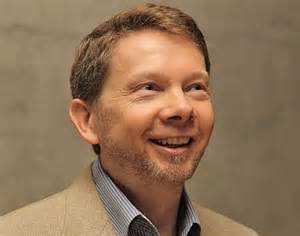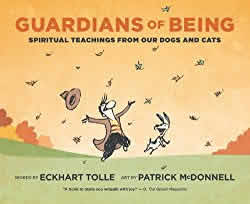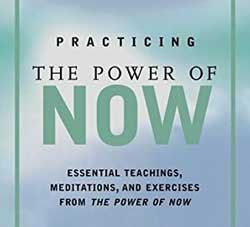Religion and Suffering
The following is Part 2 of an interview with Eckhart Tolle, conducted by Josh Max at the Omega Institute.
Josh Max: One thing that struck me while listening to your CD ("Stillness Speaks") on the way to our interview is that you say people make themselves miserable and in turn they make others miserable. It hadn't occurred to me that a person who habitually finds problems and "disasterizes" things affect everyone, the same as your smile affects me.
Eckhart Tolle: Yes. It affects everybody else, it draws everybody else into their drama, and it's meant to do that. That happens both on a personal level and you also see it in corporations and politics. I sometimes meet people who work for corporations and some of them have said it's amazing that anything gets done at all considering how much energy is uselessly burned up through inner conflict in the organization. And it makes everyone's life miserable.
JM: Yes. I work for a lot of big media organizations, and I'm dumfounded at the wars I see when I walk into some of their offices. And these are people who are telling us what's going on in the world! When you see it on that level, it's easier to take the news a lot less seriously. It's just one person's point of view.
Eckhart Tolle: Yes—and sometimes you find the same even in religious organizations. Because religion in many cases is really ideology. I'm not condemning all religions because that would not be correct, but to a large extent people have not freed themselves from their identification with their conditioned thinking. I know that at the core of each religion there is the truth, heavily obscured in some cases, but it's there. What happens when an organization arises is the amplification of the ego, the ego-ic mind structures.
JM: You say "all religions"—have you investigated religions? Judaism, Christianity, Islam?
Eckhart Tolle: Yes, some more than others. Buddhism, Christianity, to some extent Hinduism. At the core, the truth shines through. Sometimes we have to look very deeply, but it's there.
JM: I was also struck by your interpretation of the cross as a symbol of "thy will be done".
Eckhart Tolle: It's a strange dualistic symbol. Basically, it's a torture instrument. To me, Jesus stands for humanity. So this man is nailed to the torture instrument, totally helpless, in deep suffering. At that point comes total surrender to what is. "Not my will, but thy will be done." At that point, the symbolic significance of the cross is changed from being a torture instrument to a symbol of the divine. So what it points to is that the very thing that seems to stand in the way of realizing who you are. The very suffering that comes with being here in this physical realm—because eventually some form of suffering comes to everybody—can become an opening into that which we call the divine. If you're lucky, disaster comes before the physical form is lost and the psychological form dissolves. This sometimes happens through extreme suffering, when people lose everything, or they find out they don't have much more time to live. So they are faced with extreme disaster which cannot be explained away.
Philosophies collapse in the face of extreme disaster. Before, they might have had philosophy or religious beliefs, but when quite a few people face death of a loved one or their child or spouse, suddenly they question their beliefs. "This wasn't supposed to happen to me, I had a business arrangement with God. I wasn't supposed to suffer." The mind, the "me", collapses. Explanations fade. So you're faced with disaster you cannot explain that seems to deny the existence of something deeper. The cross seems to stand between you and the transcendental dimension to love. But, strangely, that very cross is the opening also.
Somebody once put it this way: "What stands in the way is the way." And you realize that when you no longer internally resist the form that this moment takes. I call it the "is-ness" of this moment.
JM: Would that be disaster or the honk of a horn while I'm trying to work?
Eckhart Tolle: Yes. A little thing or a big thing, resistance is basically the same kind of mechanism. An internal "no" to what is. And since the now is all there ever is in your life, your entire life unfolds as the present moment. People don't realize it, but all they ever have is "this". This moment. Always.
It seems so strange to put it into words. Your life is always this moment. No more, no less. But just "this" is what most people unconsciously trying to run away from. They're always in some future moment where things are hopefully better, or more fulfilling. Or mentally they project a future moment they see as fearful, that they have to tackle this possible thing that might go wrong in the future and they try to deal with now. Ignoring the aliveness that is actually there concealed in now. It is a collective mental habit to run away, to deny and to resist the is-ness of this moment. Not to aligned with now. And everybody inherits that as a part of their collective mental conditioning. They're taught to live like that from their parents, from their schools. They probably inherit even the very minds structures that create that kind of consciousness.
But there's a shift happening in humanity, a shift in consciousness, happening now because it has to happen now. Because if it doesn't happen now, mankind probably won't survive. The dysfunction of the human mind and its condition is becoming more and more intolerable to the planet, and to humanity. People can't live with themselves much longer. The planet cannot live with humans much longer! The dysfunction has become so magnified through technology.
Read part 1 of this interview
Read part 3 of this interview


